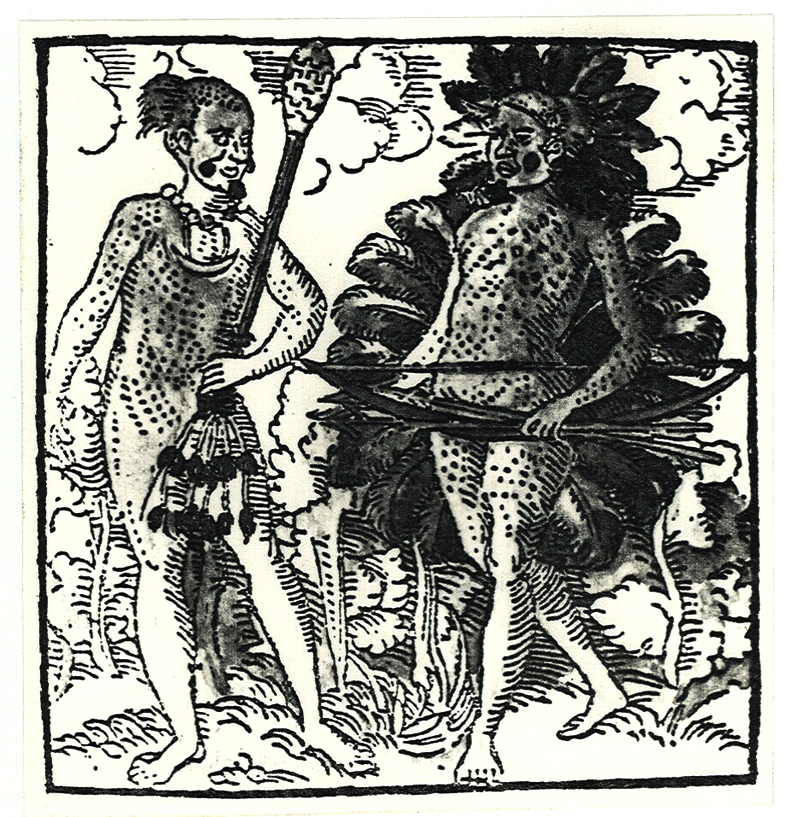In 1550 the Tupinamba travelled to France to take part as French allies in the Royal Entry Festival of Henri II in Rouen. A few years later, in 1562, they visited Rouen again, invited by Charles IX. Montaigne wrote extensively on them in Chapter 31 of his First Book of Essays, published in 1580. This is a little excerpt of what one reads there(*):
The king himself talked to them a good while, and they were made to see our fashions, our pomp, and the form of a great city. After which, some one asked their opinion, and would know of them, what of all the things they had seen, they found most to be admired? To which they made answer, three things, of which I have forgotten the third, and am troubled at it, but two I yet remember. They said, that in the first place they thought it very strange that so many tall men, wearing beards, strong, and well armed, who were about the king (’tis like they meant the Swiss of the guard), should submit to obey a child, and that they did not rather choose out one amongst themselves to command. Secondly (they have a way of speaking in their language to call men the half of one another), that they had observed that there were amongst us men full and crammed with all manner of commodities, whilst, in the meantime, their halves were begging at their doors, lean and half-starved with hunger and poverty; and they thought it strange that these necessitous halves were able to suffer so great an inequality and injustice, and that they did not take the others by the throats, or set fire to their houses.
Montaigne was not the first European author to write of indigenous peoples with admiration. Jean de Léry had done it shortly before him, as well. And Rousseau, Bouganville, and Bernardin de Saint-Pierre would do it again two centuries later. In fact, it is the Tupinambas’ second observation, on social inequality, that Rousseau echoes in his Discourse on the Origin and Basis of Inequality Among Men, which can be legitimately read as the first socialist writing ever published.
Rousseau’s pervasive influence in the political thought of the 19th century has often been highlighted. Furthermore, he has been considered as a forebear of socialism. Engels, for instance, identified him as a precursor of Marx. Despite the many differences between them (there is actually more of Babeuf than Rousseau in Marx), it is undeniable that Rousseau prefigured in important aspects early-19th-century socialism, which in turn inspired Marx’s.
But then, too, it is possible to affirm that – via Rousseau and Montaigne – socialism has its roots in the second observation made by the Tupinamba while visiting Rouen in 1562. In other words, the Tupinamba are to be regarded, if indirectly, as the forbears of socialism. It is a pity, in this sense, that neither socialists nor communists have ever dared to stick their necks out through their own modern, Western-centric looking-glass, and dreamt of becoming Tupinamba.
(*) In Ch. Cotton’s 1877 English translation.

16th-century book-illustration of two Tupinamba
